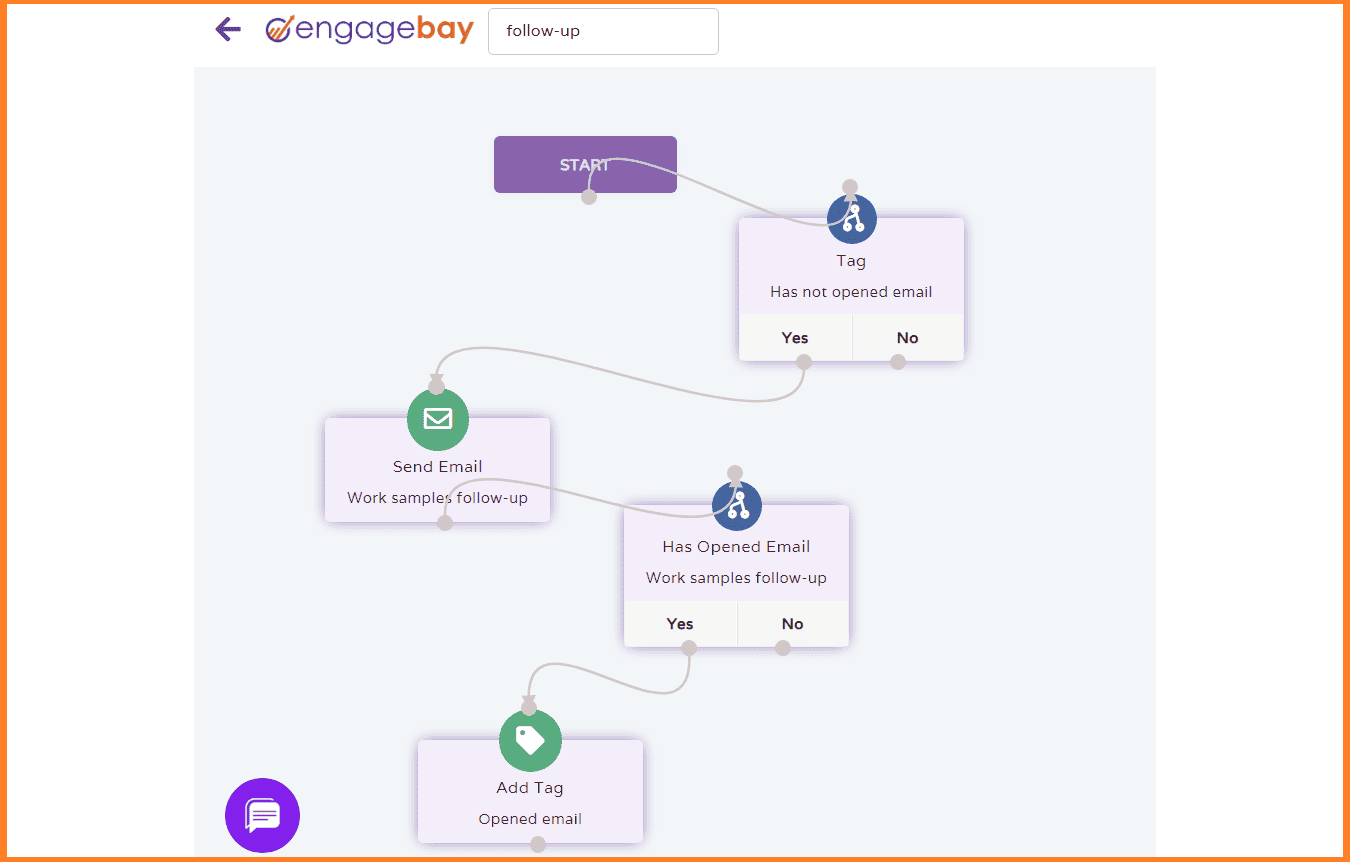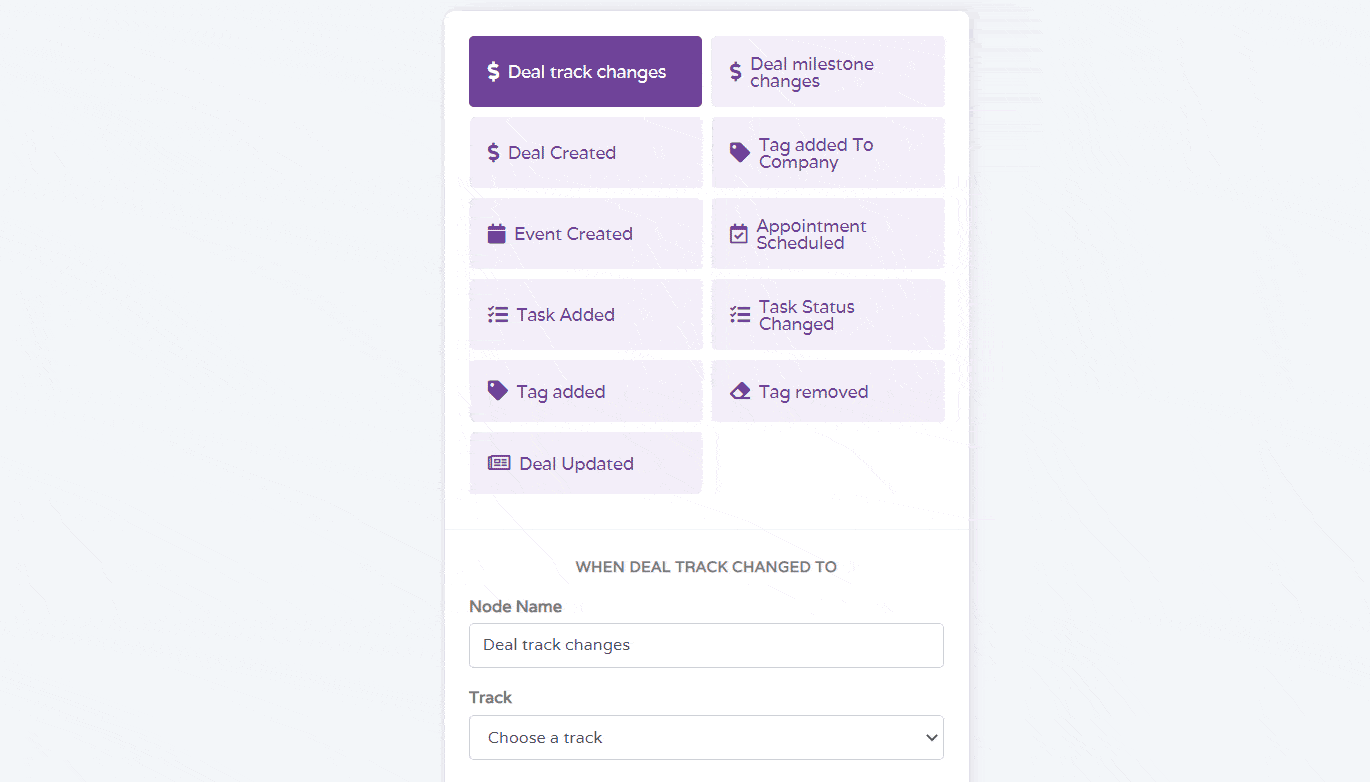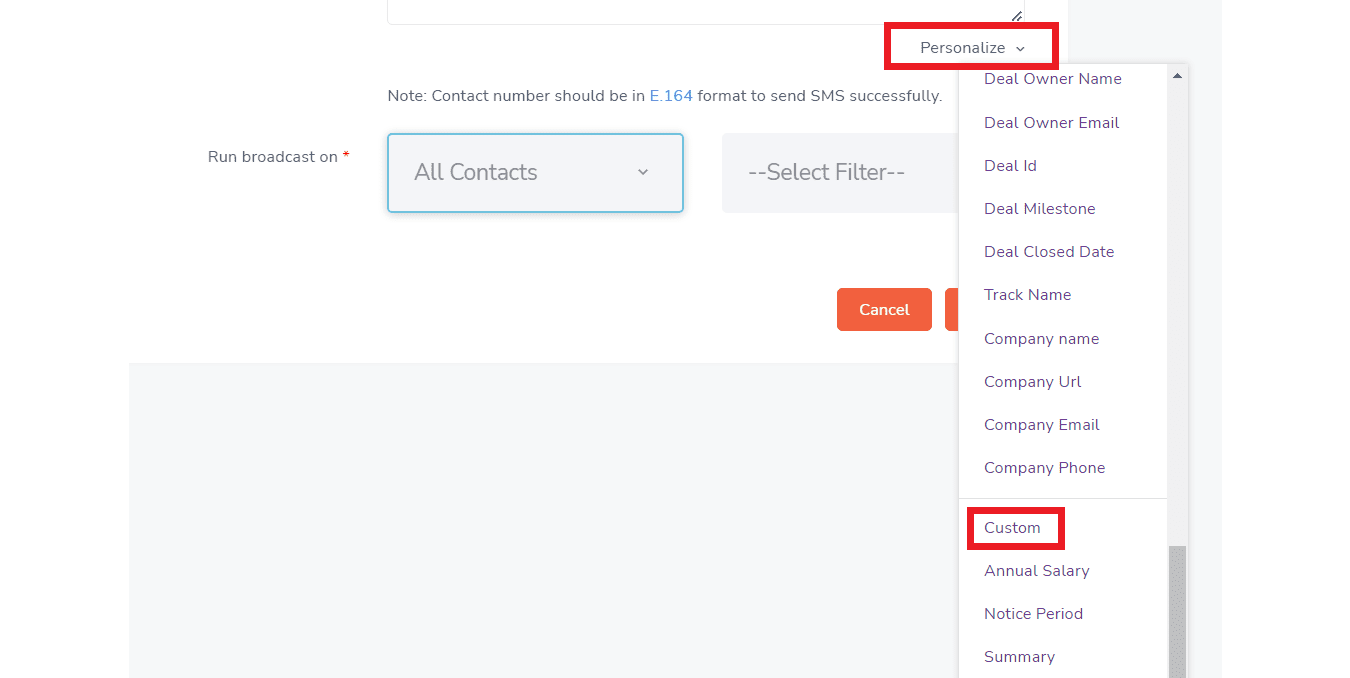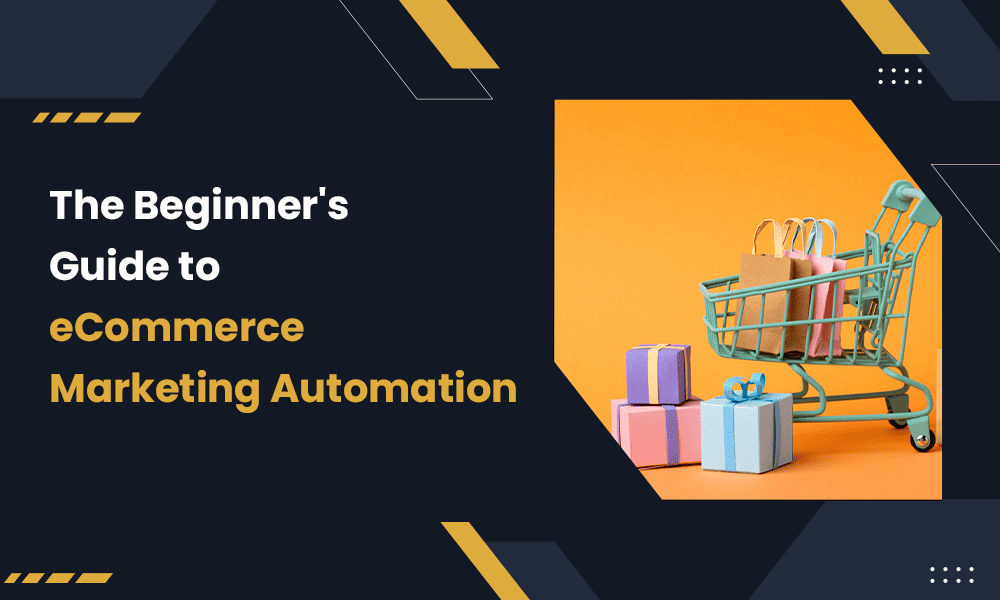Marketing automation is an invaluable tool for eCommerce businesses. It can help to streamline marketing processes, boost efficiency, and improve customer engagement and sales.
In this blog post, we’ll take a deep dive into eCommerce marketing automation and explore some strategies that can be employed to maximize its effectiveness. We’ll also look at the different types of marketing automation software available and how to choose the right one for your business.
By the end of this article, you’ll have a better understanding of eCommerce marketing automation and how it can help your business.
Table of Contents
What is eCommerce Marketing Automation?
eCommerce marketing automation uses software to automate and streamline various marketing activities, from customer segmentation and content distribution to email marketing and marketing analytics.
It is a powerful tool for online retailers and other eCommerce businesses, as it can help save time and money by automating manual tasks and optimizing marketing strategies.
With eCommerce marketing automation, you can quickly and easily identify your target audience, design custom campaigns for different segments, send automated emails or messages, track results, and analyze data. By automating your eCommerce marketing, you can focus on more critical aspects of running your business and achieving your goals.
Read also: 6 High-Impact eCommerce Marketing Strategies to Try Now
Benefits of Automating Your eCommerce Marketing
eCommerce marketing automation is a powerful tool for businesses to increase efficiency, improve customer engagement, and boost their ROI. Automation helps streamline processes, frees up time that can be spent on other tasks, and gives accurate data and insights into customer behavior.
Here are some of the major benefits of automating your eCommerce marketing.

1. Increased efficiency
Automation helps you save time and money by automating repetitive tasks such as sending promotional emails or updating product catalogs. This frees up time that would usually be spent on manual tasks so that you can focus on other areas of your business.
2. Improved customer engagement
Automation also helps you reach out to customers with personalized messages tailored to their needs. Automated emails or letters can provide customers with relevant information and drive them to take action.
3. Better data collection
Automation can help you collect valuable data about customer behavior and preferences which can then be used to inform your marketing strategies. This data can help you tailor your campaigns to target the right prospects at the right time.
4. Increased ROI
Automating your eCommerce marketing can significantly reduce costs and increase your ROI. Automation enables businesses to make more informed decisions, reducing the risk of costly mistakes and optimizing profits.
Read also: 17 Fab Ideas for eCommerce Business
4 Things to Consider Before Automating Your eCommerce Marketing
Automating your eCommerce marketing can be a powerful tool for scaling your business. Still, it’s important to take the time to consider whether or not automation is the right solution for you.
Here are some essential aspects to consider before automating your eCommerce marketing.
1. Audience
Before automating your eCommerce marketing, you need to consider your target audience and how you want to reach them. Consider their buying habits and how they interact with your brand to decide which marketing techniques work best.
2. Resources
Automating your eCommerce marketing can require a significant investment in time and money. You’ll need to determine if you have the necessary resources (including staff, technology, and budget) to automate your eCommerce marketing successfully.
3. Goals and objectives
Automating your eCommerce marketing should be driven by your goals and objectives. What do you hope to achieve with your automation efforts? By understanding your goals and how you plan to measure success, you’ll be better able to choose the right automation strategy.

4. Competition
Analyzing what your competitors are doing can give you valuable insight into the effectiveness of different automation strategies. Consider what techniques they’re using, what’s working, and what’s not so you can make informed decisions about how best to use automation for your eCommerce marketing efforts.
By taking the time to consider all of these factors before automating your eCommerce marketing, you’ll be better equipped to create a successful automated strategy that will help you maximize your marketing ROI.
👉Streamline your eCommerce marketing and watch your sales soar! Check out these 7 amazing automation strategies and tools.
Read also: 15 Easy Steps to Build a Personalized eCommerce Marketing Plan
5 Tips to Automate Your eCommerce Marketing For Better Results
Automating your eCommerce marketing is a great way to increase efficiency, save time and maximize profits. Here are some tips on how to get started.
1. Set up a customer segmentation system
You can customize marketing efforts for each group by segmenting your customers into different groups. This will help you target each group with the most relevant content and offers.
2. Create automated email campaigns
Automated email campaigns allow you to send relevant, personalized emails to customers based on their segmentation. You can use these campaigns to nurture customer relationships, announce new products or offers, and thank customers for their loyalty.
3. Leverage social media automation tools
Automating your social media accounts helps you stay active in conversations and post engaging content without having to do it manually every day. Platforms like Hootsuite and Buffer make it easy to schedule posts and monitor engagement.
Read also: The Best CMS for eCommerce
4. Implement remarketing campaigns
Remarketing campaigns can help you target customers who visited your website but didn’t convert. These campaigns will ensure that you’re reaching out to those potential customers with ads, discounts, and other offers that may convince them to purchase from you.
5. Analyze customer data
Collecting and analyzing customer data can help you better understand your customers and create more effective marketing campaigns. You can create custom segments with the right insights and tailor your strategies to meet their needs.
Read also: eCommerce CRM: Top Platforms to Streamline Your Business
Best Practices for Automating Your eCommerce Marketing
Even with the best of strategies, eCommerce marketing automation can feel overwhelming. Here are some best practices to help.

1. Personalization
It is important to customize the messaging and content for your customers so that it is tailored to their individual needs and preferences. This can be done through segmentation and customization of emails, website content, and product recommendations.
2. Automated A/B testing
Utilizing automated A/B testing is vital for optimizing your campaigns. Make sure to have a well-defined hypothesis and a clear goal that you want to measure when A/B testing for the best results.
3. Analyze your data
It is essential to regularly analyze your data to gain valuable insights about customer behavior and preferences. This will help you develop better strategies for automating your eCommerce marketing and ensure you are maximizing your efforts.

4. Create relevant content
Ensure that the content you are creating and sending out is relevant to the customer’s interests and needs. This will help improve engagement.
Read also: Marketing Automation KPIs You Need Like Coffee (Must-Have)
5. Automate retargeting
Automate retargeting campaigns to capture customers who have already interacted with your business or website but are not yet ready to buy. Leverage dynamic retargeting ads to personalize your campaigns and ensure you get the most out of your automation efforts.
6. Monitor performance
Regularly monitor the performance of your campaigns and adjust them accordingly. Make sure to test different tactics and strategies to improve results and continuously stay ahead of the competition.
Read also: eCommerce Email Marketing Simplified: 15 Examples + Tips
Types of Marketing Automation Seen in eCommerce
Marketing automation is an incredibly powerful tool for eCommerce businesses, but it can be confusing to understand the different marketing automation types.
Here, we’ll take a look at some of the most common types of marketing automation used in eCommerce and how they can help to streamline your business operations.
1. Email automation
Email automation is one of the most popular types of marketing automation used in eCommerce.
This type of automation allows you to set up automated email campaigns sent out to customers on specific days or after specific events, such as a purchase or a product review.
It can also trigger email reminders for customers who still need to complete their purchases.

2. Social media automation
Social media automation can manage and streamline your social media accounts. This type of automation allows you to schedule posts in advance and promptly respond to comments and messages. It can also automate interactions with your followers, such as liking and commenting on their posts.
Read also: eCommerce Email Automation: Practical Email Flows + Expert Opinions
3. Ad retargeting automation
Ad retargeting automation is a great way to increase the chances of getting customers to complete their purchases. This type of automation allows you to target ads to customers who have visited your website but haven’t completed their purchase.
It can also be used to deliver personalized messages based on customer behavior.
👉The consequences of overstocking can be detrimental to your eCommerce business. Learn how to mitigate these risks.
4. Abandoned cart automation
Abandoned cart automation allows you to send automated emails to customers who have abandoned their carts on your website. These emails can remind customers about their abandoned items and encourage them to return and finish their purchase.
5. Data analysis automation
Data analysis automation is another type of marketing automation that can help you get insights into how customers interact with your website. This type of automation allows you to track website activity, such as clicks and views, customer demographics, and other insights. You can use these insights to make better decisions about optimizing your marketing campaigns.
As you can see, there are several ways that you can use automation to streamline your operations and optimize your marketing campaigns. With the right tools, you can increase efficiency, maximize ROI, and reach more customers.
Read also: 7 Powerful eCommerce Marketing Automation Strategies + Tools
How Does Marketing Automation Software Work?
Marketing automation software is designed to help businesses automate the various marketing tasks necessary to succeed in eCommerce. The way it works is that it automates certain marketing functions, allowing businesses to focus their resources on other areas of their business.
The process starts with a business defining its target market, allowing the software to create tailored campaigns that customers can send out. The software will usually feature a drag-and-drop interface, making it easy for businesses to create campaigns quickly and efficiently. It will also have options for personalization, such as adding images, videos, or text, and options for segmenting and targeting specific audiences.

Once the campaign is created, the marketing automation software will take care of the sending process. It can be set up to send emails or messages at certain times and frequencies or triggered by certain events or customer behaviors. This way, businesses don’t have to manually send emails or messages whenever they want to reach out to customers.
Finally, the marketing automation software will track the performance of each campaign. This will give businesses valuable insights into which campaigns are working and which ones need improvement. Businesses can adjust their campaigns and improve their marketing strategy based on this data.
Overall, marketing automation software is invaluable for any eCommerce business, as it simplifies and automates many of the tedious marketing tasks associated with running an online store.
Read also: Guide to Email Marketing for eCommerce
Finding the Right Marketing Automation Software for eCommerce
Selecting the right marketing automation software for your eCommerce business can be daunting. With so many options out there, it’s important to do your research well.
Here are a few tips to help you make the best decision.

1. Know your needs
Before researching software, it’s essential to determine what features and capabilities you need from a marketing automation solution.
Make a list of the features you need and any features that would be nice to have but aren’t essential. This will help you narrow down your options and find the best fit for your eCommerce business.
2. Look for integrations
When selecting a marketing automation solution, it’s essential to look for one that integrates with other systems that your business is already using. This will ensure that data can flow between your platforms and save you time by eliminating manual data entry.
3. Consider scalability
As your eCommerce business grows, you’ll likely need more advanced marketing automation capabilities. When selecting a marketing automation solution, choose one that can scale as your business grows.
4. Read customer reviews
Customer reviews are a great way to get a feel for how a software solution performs. Take some time to read through customer reviews and look for any areas of concern before making a final decision.
5. Test out the software
Once you’ve narrowed down your options, test out the different solutions before making a final decision. This will help you determine the best fit for your business and ensure you get the most out of your investment.
By taking the time to do your research and compare different options, you can be sure to select the best marketing automation software for your eCommerce business.
Read also: Ecommerce Marketing: 8 Areas to Focus on to Increase Sales
Kinds of Marketing Automation Campaigns for eCommerce
Marketing automation campaigns can provide immense value to eCommerce stores. Whether you’re a small business just getting started or an established enterprise with complex customer relationships, the right automation campaigns can streamline and optimize your sales process.
Here are some of the most effective marketing automation campaigns that are suitable for any eCommerce store.
1. Welcome series
Welcome series is an excellent way of introducing new customers to your store. During this automated campaign, you will send a series of emails to introduce your brand to the customer as well as provide them with useful resources like discount codes. As a result, the customer can make informed purchases and establish a relationship with you.
2. Cart abandonment series
Online stores are facing a major problem with cart abandonment. You can remind customers who have abandoned their shopping carts about the items they left behind using an automated cart abandonment series.
Customers can also be enticed to complete their purchases with the help of this automated campaign, which can include special offers or discount codes.
3. Retargeting emails
Retargeting is a powerful marketing tactic that can help you reach customers who have already visited your site but haven’t made a purchase yet.
With an automated retargeting series, you can reach out to these customers and remind them of the items they were interested in. This automated campaign can also include additional discounts or special offers to encourage customers to complete their purchases.
4. Post-purchase nurturing emails
Post-purchase campaigns are essential for building customer relationships and encouraging repeat purchases. This automated campaign includes emails that thank customers for their purchase, provide them with product usage tips, and offer follow-up discounts or promotions to keep them coming back.
These are just a few of the automated marketing campaigns that are suitable for any eCommerce store. Using these campaigns can increase customer engagement, boost sales, and build lasting relationships with your customers.
Read also: Find the Perfect B2B Ecommerce Platform for Your Needs
Best eCommerce Marketing Automation Platforms in 2023
When it comes to choosing the best eCommerce marketing automation platform for your business, there is no one-size-fits-all solution.
However, there are several options available that can help you achieve your goals and make more sales.
- Mailchimp is an email marketing solution that can help you create targeted email campaigns, manage customer relationships, track your email marketing ROI, and more. It also has a user-friendly drag-and-drop editor, which makes creating campaigns easy.
- EngageBay is an all-in-one marketing automation & CRM solution that helps bloggers, digital marketers, and small companies engage better with their audience. It provides a host of marketing, sales, and customer retention tools.
- Salesforce is a cloud-based customer relationship management platform that offers automation tools such as segmentation, workflow rules, and automated emails. Its lead-generation tools help you capture leads from multiple channels.
- HubSpot is another popular eCommerce marketing automation platform that provides features like marketing automation, email marketing, lead management, and analytics. With its powerful personalization capabilities, you can easily customize messages to individual customers and create automated workflows.
- Zoho is an integrated suite of applications designed to help businesses with their digital marketing efforts. Its automation tools allow you to automate everything from lead scoring to email campaigns and more.
No matter which platform you choose, make sure it fits your business needs and can help you reach your goals. Additionally, take advantage of the tutorials and support offered by each platform to ensure you get the most out of your eCommerce marketing automation efforts.
Read also: eCommerce Email Copy: 12 Tricks to Drive More Conversions
Conclusion
eCommerce marketing automation is an effective and efficient way to increase sales and grow your business. While the initial setup may be a bit daunting, the long-term benefits are well worth the effort.
By leveraging the right platform, understanding your customer needs, and having patience, you can maximize the effectiveness of eCommerce marketing automation to help you make more sales.
If you want to automate the marketing for your eCommerce business, you must try EngageBay. It is the #1 alternative to HubSpot for small businesses, and is loved by thousands already.

